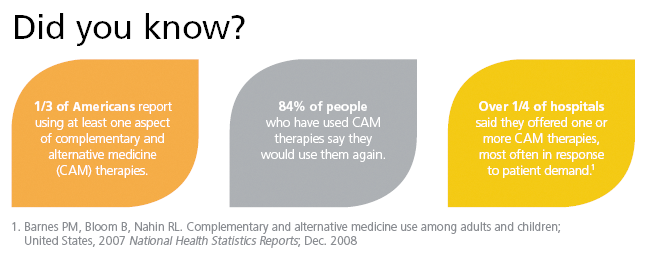

The National Center for Complementary and Integrative Health (NCCIH), the Federal Government's lead agency for scientific research on complementary and alternative medicine (CAM), is one of the 27 institutes and centers that make up the National Institutes of Health (NIH) within the U.S. Department of Health and Human Services. According to NCCIH, defining CAM is difficult, because the field is very broad and constantly changing. NCCIH defines CAM as a group of diverse medical and health care systems, practices, and products that are not generally considered part of conventional medicine. The boundaries between CAM and conventional medicine are not absolute, and specific CAM practices may, over time, become widely accepted.
Generally, the term complementary medicine is used to denote "together with." An example is the use of aromatherapy to help with pain after surgery.
The term alternative medicine is used to denote "in place of." An example of this is the use of garlic to lower blood pressure.
Check out "What's in a Name?" by the NCCIH for more information.

